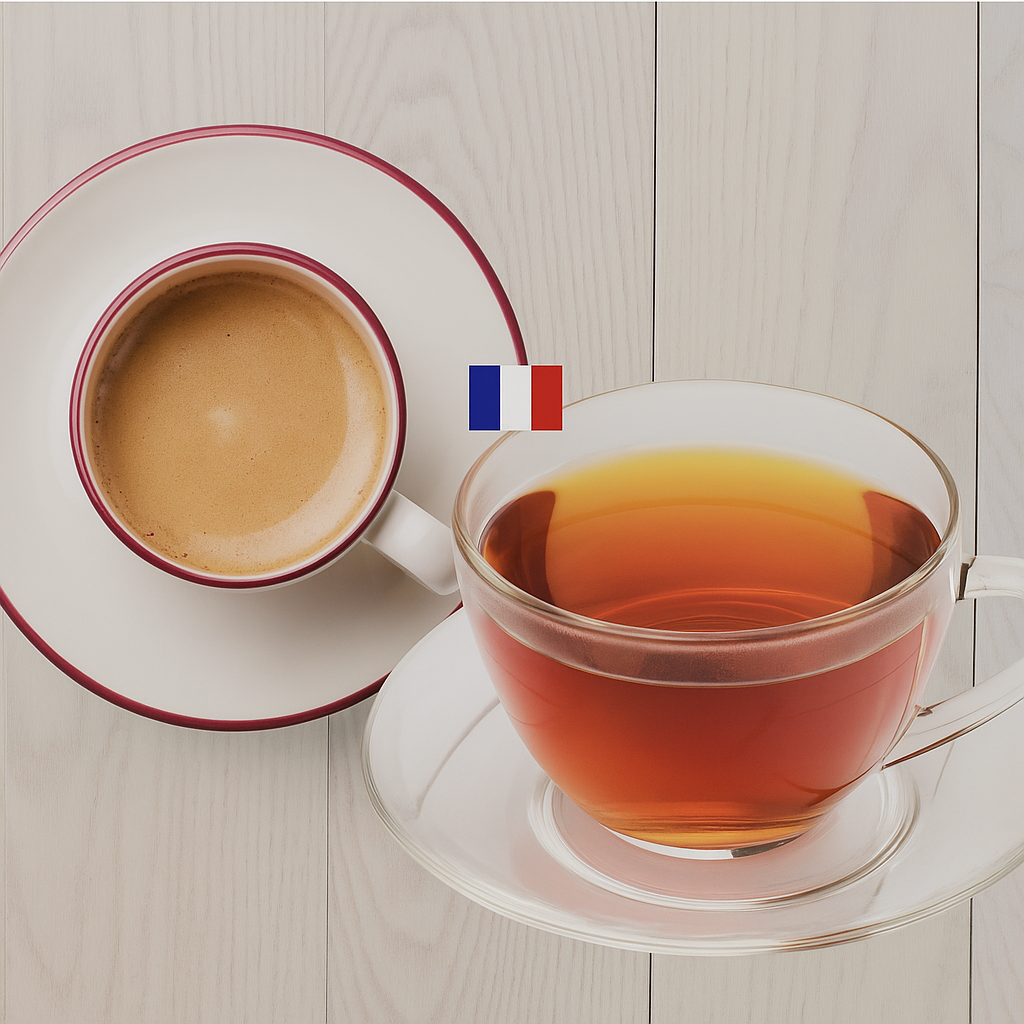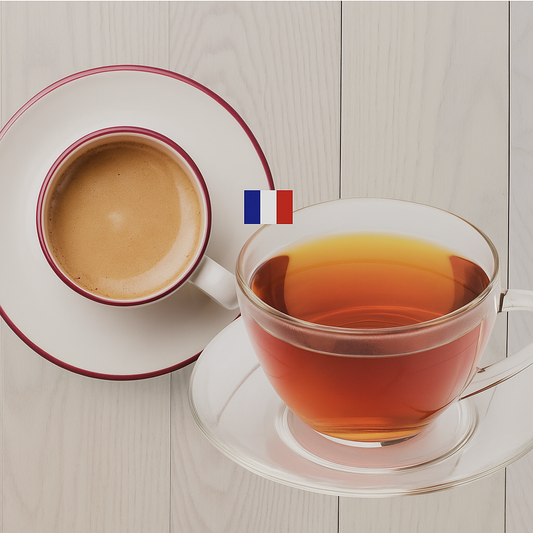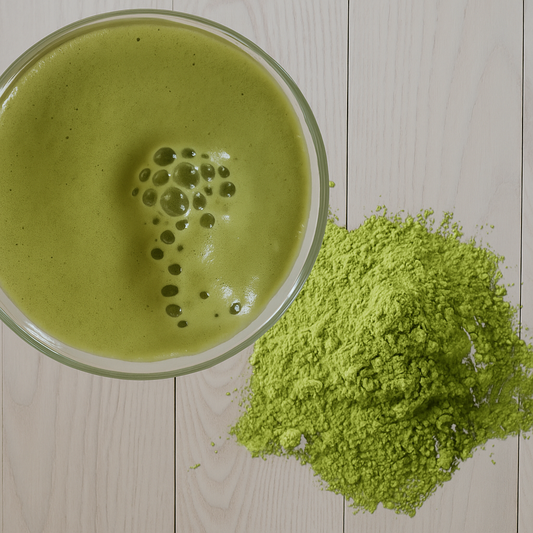
Tea or coffee? What to drink? Why?
Let's start at the beginning: are the molecules in tea and coffee different?
 One molecule, two molecules, the same molecule, but with different actions depending on their environment. Extracted from coffee beans, caffeine was discovered in 1819 by the German chemist Runge. Another researcher, Oudry, declared a few years later that he had isolated another molecule from the leaves of the tea plant, which he called theine. Although it has been proven since 1838 that they were in fact the same molecule , the idea of two different substances still seems to persist in everyday language today.
One molecule, two molecules, the same molecule, but with different actions depending on their environment. Extracted from coffee beans, caffeine was discovered in 1819 by the German chemist Runge. Another researcher, Oudry, declared a few years later that he had isolated another molecule from the leaves of the tea plant, which he called theine. Although it has been proven since 1838 that they were in fact the same molecule , the idea of two different substances still seems to persist in everyday language today.In both cases, it is simply caffeine, chemically known as 1,3,7-trimethylxanthine, a molecule also present in other plants such as cocoa, cola, mate, and guarana. It stimulates and accelerates the functioning of the nervous system. For plants, this molecule represents a form of natural pesticide. The plant thus produces caffeine to protect itself from predators.
But what is the real difference between tea and coffee and how do they affect our bodies?
 In coffee, caffeine is more "bioavailable." That is, it directly stimulates the production of adrenaline (being more freely metabolized). The exciting effect of coffee is almost immediate, but shorter-lived than tea (2 to 3 hours on average).
In coffee, caffeine is more "bioavailable." That is, it directly stimulates the production of adrenaline (being more freely metabolized). The exciting effect of coffee is almost immediate, but shorter-lived than tea (2 to 3 hours on average).In tea, caffeine is present at a much lower concentration than in coffee and its action is very different. It is not free, but bound to L-Theanine, it delays, prolongs and accentuates its effect on the central nervous system. Tannins also seem to participate in slowing down the effects of caffeine in tea. The stimulating effect of caffeine in tea is therefore smoothed and more prolonged, (6h to 8h on average).
For its part, L-theanine appears to play a calming role with an effect opposite to that of caffeine. Its effects on the brain are multiple. By increasing the concentration of GABA (gamma-aminobutyric acid) (naturally present in tea leaves), serotonin and dopamine, L-theanine produces relaxation and a reduction of physical and mental stress. Serotonin and dopamine are involved, among other things, in our feelings of happiness and pleasure. GABA plays a very important role as a modulator of the activity of the central nervous system, involved in the control of anxiety (fear and pain). L-theanine also increases the activity of alpha brain waves. These waves also act to reduce stress and anxiety while increasing attention and alertness. It is the synergy of all the molecules present in tea (caffeine, L-theanine, GABA and various polyphenols) that stimulate the body, allowing an improvement in our physical and mental performance, while avoiding nervousness and irritation. These molecules do not produce the same effects without each other. However, some green teas, and particularly Matcha tea, have a higher concentration of caffeine than other teas, hence their constant comparison to coffee.
So tea or coffee?

But why choose, when you could enjoy both?
Enjoy coffee simultaneously for its immediate effect and tea to stay awake and focused longer. Besides, why deprive yourself of two drinks that you enjoy? (without overdoing it, of course!)
The expression of caffeine in tea depends on the temperature and brewing time. The higher the temperature, the more caffeine will be released into the cup. The same is true for the brewing time. Beyond 2 to 3 minutes of brewing, more caffeine will be released. It should be added that these two factors also increase the presence of tannins in the cup and modify not only the caffeine level, but also the taste, increasing bitterness and astringency.
Taste issues related to brewing times and dosages are discussed in more detail in the "How to Enjoy" sections for each tea. Furthermore, the benefits of tea, such as weight loss, are also explained in another section of our blog, "The Virtues of Tea."



